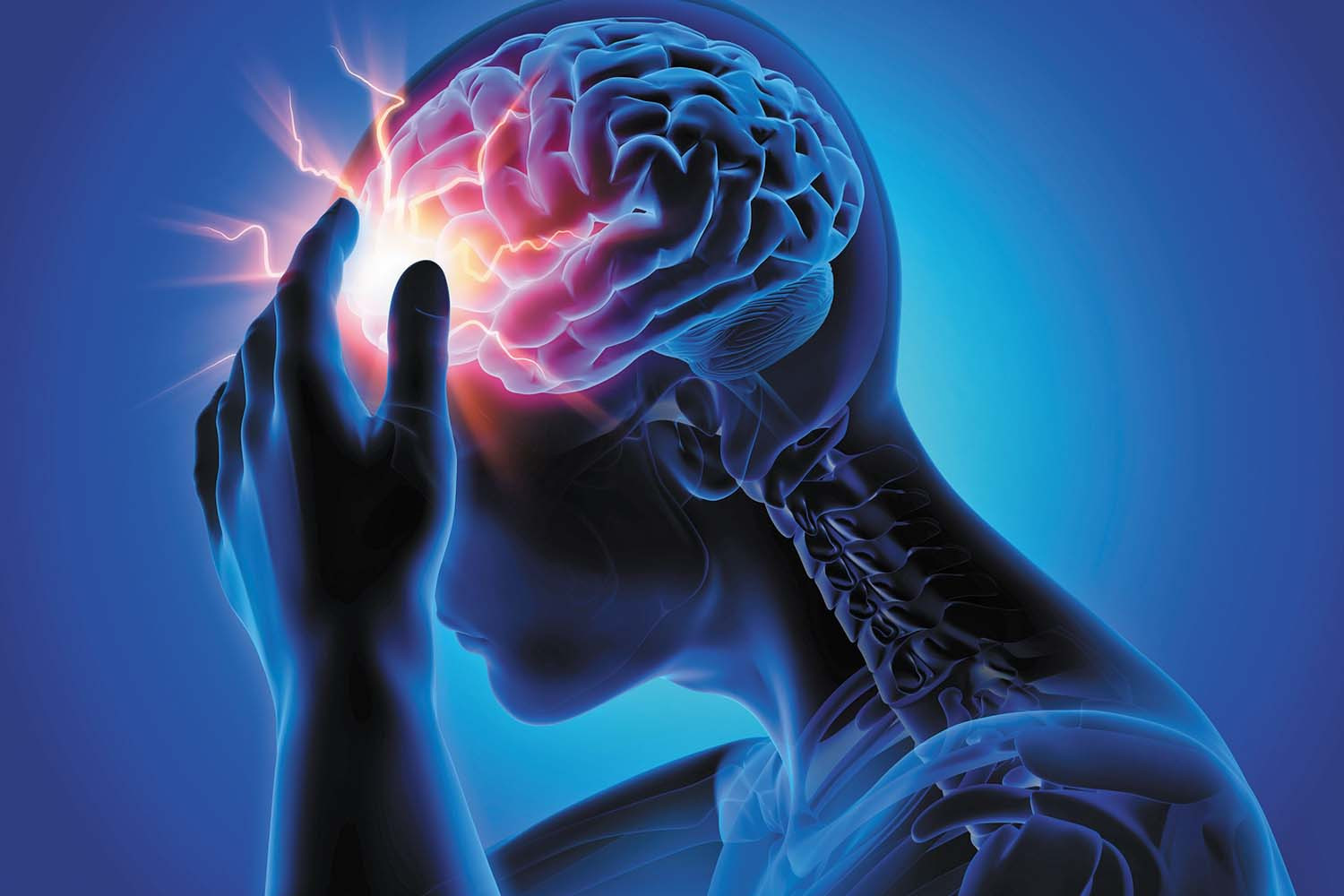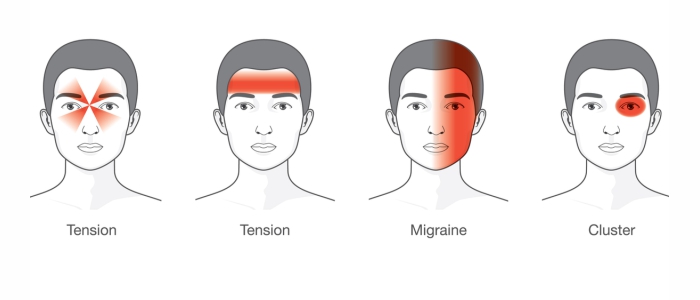Headache and Vertigo for Days-various aspects-
Headaches and vertigo that last for days might be a sign of a variety of illnesses, such as vestibular migraines, Menière’s disease, or even a more serious underlying problem like a brain tumor or trauma. In order to identify the origin and best course of action, it is crucial to get medical guidance, particularly if the symptoms are severe or ongoing.


Potential Causes and Considerations:
Migraine in the Vestibular System:
Vertigo, lightheadedness, and perhaps additional migraine symptoms like headache, visual abnormalities, and sensitivity to light and sound are all signs of this kind of migraine. Several things, such stress, tiredness, and particular foods, can cause vestibular migraines, which can last for anywhere from minutes to days.
Disease of Menière:
Vertigo, hearing loss, and a sensation of fullness in the ear are all symptoms of this inner ear illness.
Possible Additional Causes:
Headaches and dizziness can be symptoms of infections such vestibular neuritis, dehydration, or, in rare cases, a more serious condition such a brain tumor or injury.
When to See a Doctor:
If the symptoms are severe, abrupt, or interfere with daily life, it is essential to see a physician. Get medical help right away if you experience additional neurological symptoms, like trouble swallowing, double vision, or eye movement issues.
Treatment Choices:
- Vestibular Migraine: Treatment may consist of medications to control the acute episode as well as preventive measures to lessen the frequency of attacks.
- Menière’s Disease: Dietary changes and other lifestyle modifications, as well as medications to alleviate vertigo and hearing loss, may be among the therapy options.
- Other Reasons: Treatment will vary depending on the root cause of the symptoms.
If Any Patient of ENT Requires Any Surgery, Opd Consultation Or Online Consultation In Clinic of ENT Specialist Doctor Dr. Sagar Rajkuwar ,He May Contact Him At The Following Address-
Prabha ENT Clinic, Plot no 345,Saigram Colony, Opposite Indoline Furniture Ambad Link Road ,Ambad ,1 km From Pathardi Phata Nashik ,422010 ,Maharashtra, India-Dr. Sagar Rajkuwar (MS-ENT), Cell No- 7387590194, 9892596635
General guidance:
- Hydration: Maintain hydration since dehydration can cause dizziness and headaches.
- Rest: Stay at home and get lots of rest, avoiding anything that might make your symptoms worse.
- Stay Away From Triggers: Recognize and steer clear of possible causes of your headaches and vertigo, such as specific foods, stress, and insufficient sleep.
- Home treatments: In some cases, home remedies like the Epley method for vertigo can help alleviate symptoms. Before using any home remedies, though, it’s crucial to speak with a healthcare provider.
- Professional Guidance: Based on your particular symptoms and medical history, a physician can offer an accurate diagnosis and a customized course of treatment.
Some headaches can be accompanied by a sense of pressure in the head or behind the eyes, as well as vertigo. Changing position may make the symptoms worse. A headache and dizziness are both symptoms of some disorders, like sinusitis.
A sensation of head pressure can be described as headache, soreness, exhaustion, difficulty concentrating, or even dizziness by many individuals.
Migraine can frequently result in dizziness and headache pressure. Any symptoms that are persistent, extremely severe, or come on abruptly may indicate a serious underlying illness.
Keep in mind that there are four different kinds of dizziness:
Vertigo is the feeling that one is moving even when they are motionless, or that one is turning around.
Disequilibrium: A sensation of instability or imbalance.
Presyncope: The sensation that one is about to lose consciousness.
Lightheadedness: The sensation that one is losing touch with their surroundings and experiencing disorientation.
It may be possible for someone to recognize what kind of dizziness they are experiencing, which might aid a physician in determining the underlying cause.
The potential reasons for the coexistence of head pressure and dizziness will be covered in this article. In addition, it will discuss some treatment alternatives for each illness and describe when one should see a doctor.
For Update On Further Important Health Related Topics And Frequently Asked Questions On Health Topics By General Population Please Click On The Link Given Below To Join Our WhatsApp Group –
https://chat.whatsapp.com/Lv3NbcguOBS5ow6X9DpMMA
But these are not the only potential reasons for dizziness and head pressure. For a thorough examination and accurate diagnosis, one should consult a physician.
Migraine
A migraine is a neurological headache brought on by alterations in the brain that cause head pain and other strange symptoms.


Migraine can manifest in some individuals as head pressure accompanied by additional neurological signs, such as:
- lightheadedness
- light sensitivity
- vomiting
- hearing strange noises
- observing strange lights
What to do about a migraine headache
Although pain relievers can alleviate a migraine headache, a doctor should be consulted if the headache is new or if the migraine headaches are recurring. They can rule out other illnesses and recommend drugs to help prevent migraine headaches.
To aid in determining possible causes, the doctor may also advise maintaining a headache diary.
Allergies
Seasonal allergies, sometimes referred to as allergic rhinitis by doctors, can give you a sensation of pressure in your head and sinuses.
Additionally, some individuals have symptoms like sneezing, itchy eyes, a painful throat, and a overall sense of malaise. Allergies can also make one feel lightheaded.
Treatment for allergies
There are several therapies that can alleviate allergy symptoms. First, you can prevent allergies by using an air filter or spending more time inside during allergy season. Wearing masks can also help lessen allergy symptoms for certain people.
Allergy treatment may also help alleviate symptoms. Another potential treatment is immunotherapy, which exposes a person to a very tiny amount of the allergen in order to prevent their body from having an excessive response to it. Immunotherapy in the form of allergy injections may be discussed with a doctor by those seeking a long-term cure for their allergies.
DISCLAIMER-Some patients go to net and directly take treatment from there which can lead to catastrophic consequences-Then- Many people ask then why to read all this text -the reason is that it helps you to understand the pathology better ,you can cooperate with treatment better ,your treating physician is already busy with his patients and he does not have sufficient time to explain you all the things right from ABCD ,so it is always better to have some knowledge of the disease /disorder you are suffering from.
Sinus infection
Headaches brought on by sinusitis can produce a sensation of pressure in the head, particularly in the area around the eyes and in the front of the face. Fluid accumulates in the sinuses, usually as a result of infection, which causes this.
Lower energy levels, nausea, and dizziness are other symptoms that some people experience.
How to treat sinusitis
Warm compresses or heated pads may be applied to the face to help. Taking allergy medications or over-the-counter (OTC) pain relievers may also help some people.
Some sinus infections can be treated with antibiotics, but only if they are caused by bacteria. They are unable to treat viral illnesses.
Some individuals might experience a persistent form of sinusitis that necessitates a consultation with an expert.
Infections of the ear
The middle ear, which is immediately beyond the eardrum, is the area most frequently impacted by ear infections. These infections are prevalent in youngsters. Sometimes, an ear infection results from another ailment, like the flu or a sinus infection.


To maintain its cleanliness, the middle ear produces its own fluid. An aperture should allow this liquid to pass into the throat. If the throat gets inflamed, though, the aperture will shut. As a result, the fluid builds up, which might be painful. After that, it could get infected.
The majority of individuals experience a fever, and symptoms may appear out of nowhere. Head pressure, ringing in the ears, and disorientation are additional possible symptoms.
Treatment options for ear infections
The pain of an ear infection may be lessened by lying down with the affected ear facing up and applying a heated pad on top. This is due to the fact that gravity aids the fluid in the ear in flowing into the throat. The heat from the pad also aids in maintaining the drainage site open.
Using over-the-counter pain relievers can also help alleviate the symptoms.
Middle ear infections can be treated with antibiotics, particularly in young children and those with compromised immune systems. Lying on the right side to drain the ear may help prevent a recurrence of the problem and may reduce the risk of a burst eardrum.
Headache due to stress
When muscular tension spreads to the head, a tension headache results. Shoulder or neck discomfort is another possibility.
Headaches caused by tension often develop gradually, increasing in severity over time and causing pain throughout the head, as well as occasionally a sensation of pressure. Dizziness can also be a symptom of tension headaches.
What to do for a tension headache
Using over-the-counter headache remedies or applying hot or cold packs to the neck or head may help some people get relief from tension headaches.
A tension headache that lasts 15 or more days each month for three or more months is considered a chronic tension headache. They can occasionally occur as a result of persistent stress, sitting at a computer all day, or underlying muscular problems. A doctor may be able to recommend ways to address these problems.
If any patient has any ENT -Ear nose throat problems and requires any , consultation ,online consultation ,or surgery in clinic of ENT specialist Doctor Dr Sagar Rajkuwar ,he may TAKE APPOINTMENT BY CLICKING ON THE LINK GIVEN BELOW-
Clinic address of ENT SPECIALIST doctor Dr Sagar Rajkuwar-
Prabha ENT clinic, plot no 345,Saigram colony, opposite Indoline furniture Ambad link road ,Ambad ,1 km from Pathardi phata Nashik ,422010 ,Maharashtra, India-Dr Sagar Rajkuwar (MS-ENT), Cel no- 7387590194 , 9892596635



